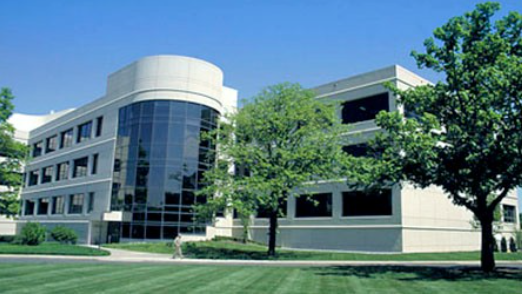by Soumyadipa Das
As the world gains back its old rhythm and people start to meet beyond zoom, iJOBS joined in by organizing its first in-person site visit after the COVID-19 pandemic. A cohort of graduate students and postdoctoral researchers from Rutgers University headed to the Bristol Myers Squibb (BMS) New Brunswick location on September 15th, 2022. BMS-CLIMB (Cultivating Leadership and Innovation for Millennials and Beyond), a people and business resource group within BMS, organized this event. As the name indicates, CLIMB focuses on individual growth and fosters talent of young employees within BMS. The site visit was divided into three segments:
- Talks from BMS employees, focusing on science and human resources.
- Networking hour with BMS employees
- Lab visit
BMS is a Fortune 500 global pharmaceutical company headquartered in New York City. Bristol-Myers and Squibb were two separate pharmaceutical companies based in New York that merged in 1989 to become Bristol-Myers Squibb. Today, BMS is present all around the world with R&D facilities in the US, Europe, UK, India, and Japan. With the mission “to discover, develop, and deliver innovative medicines that help patients prevail over serious diseases,” the company focuses its research on oncology, hematology, immunology, cardiovascular diseases, and fibrosis. Moreover, BMS works across different drug platforms, including small molecules, antibody-drug conjugates, RNA oligonucleotides, and cell and gene therapy.
After a short introduction, we proceeded with the two talks by Jonathan Romero and Danielle McGrath. Jonathan is a Senior Director – Head of Clinical Biologics Operations at BMS. Jonathan was a chemical engineering major and his PhD dissertation focused on using semi-permeable membranes for separation of chiral organic molecules; a stark contrast from his current role at BMS. This showed the group that one doesn’t always need to pursue their PhD work as a career. During his talk, Jonathan provided insight into the long process of drug discovery, development, production, and commercialization. He also focused on CAR T-cell therapy for cancer patients as one of the promising ventures for BMS. Danielle, a Senior Program Manager of Early career talent acquisition strategy and delivery, spoke next. She focused more on the budget, location, and growth opportunities at BMS. She mentioned no matter what your major is (yes, it doesn’t have to be science), BMS probably has some role suitable for you, as she is herself an economics graduate. Both the speakers purposefully mentioned of the impact of the Global Patient week program, where patients visit the BMS campus and interact with the employees. The program inspired both of them to look back and appreciate their role in changing human lives for better.
If you are curious to work at BMS, you might want to know about their mentorship programs that they offer. The programs are for people in different stages of their R&D career; from fresh PhDs to PhDs with 3-5 years of experience. Do you need another reason to work here? BMS sponsors visas to attract global talent for PhD research positions. BMS also focuses on the individual development of its employees from marginal groups by creating different alliances: B-NOW (Network of Women), OLA (Organization for Latino Achievement), PAN (Pan Asian Network), BOLD (Black Organization for Leadership and Development) to name a few. The global lead of these organizations is working for salaried positions and not as a volunteer, this manifests BMS’s commitment to diversity. BMS also offers temporary rotation programs where employees can work with other groups for several weeks to figure out the best match for themselves. At BMS, you will never feel ‘stuck’! So, if you are finally convinced, check out the internships and co-op opportunities available at BMS.

After the talks, we proceeded to the BMS cafeteria where we got a chance to network with more BMS employees while enjoying some light snacks. The networking opportunity was maximized by adopted a speed-networking style. As we sat around the table, the BMS employees rotated tables in quick succession for brief one-on-one introductions. We got to meet with several Rutgers and iJOBS alum, who gave more information about the onboarding process at BMS, which can vary from a week to a month with usually 5-6 round of interviews. It seems that the research is more interdisciplinary and collaborative in a big pharma like BMS and communication skills play a key role along with technical skills to perform well in this fast-paced environment.
We also got the opportunity to explore the beautiful BMS campus and visit some of the labs. Sujana Shifon, a CLIMB member, guided the lab tour. Sujana works in the small molecules department while pursuing a master’s degree from Rutgers University. We got to visit the analytical lab and the automation lab; both of which were equipped with mass spectrometers, HPLC, GCMS, etc. As a chemist, I was very excited to witness the state-of-the-art technology in these labs that can make the day-to-day lab work much faster and more comfortable. Sujana also informed us about the robot at BMS, which can precisely weigh hundreds of samples together.
As we were heading back, we witnessed the other employees ending their workday as well. This is an excellent testament to the work-life balance BMS can provide. If you are planning to graduate soon or planning to move to industry from academia, then consider working for BMS and keep an eye at their careers page. At BMS, fostering talent is a top priority, which makes it a great place to start and build a career in industry as a scientist. If you are looking for a place with great work-life balance with ample opportunities for growth to either leadership role or transitioning to non-bench career, BMS should make to your top priority list!
This article was edited by Junior Editor Sonal Gahlawat and Senior Editor Natalie Losada.